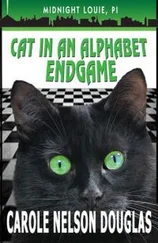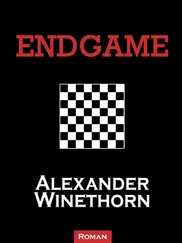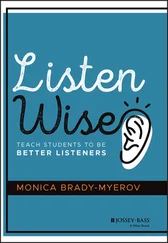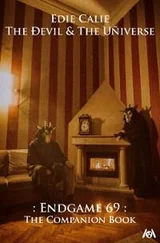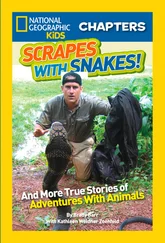Within a few months after joining the club, Bobby, together with Lombardy and Gore, dominated the weekly speed tournaments, which limited players to ten seconds a move. Eighty-year-old Harold M. Phillips, a master and member of the board, wistfully likened Bobby’s style of play to that of Capablanca, whom he remembered well from when the young Cuban joined the club at seventeen in 1905.
Although Bobby’s life now revolved around the Manhattan, there were other pawns to capture. Nigro brought his student to the 1955 United States Amateur Championship, held at the end of May, during the Memorial Day weekend. Because players of master strength weren’t eligible to enter, the tournament encouraged the participation of weaker and less experienced players. It was a Swiss System tournament (in which players with like scores keep getting paired until a winner emerges after a specific number of rounds are played), with each contestant playing six games. The tournament was held at a resort at Lake Mohegan, north of New York City, in Westchester County.
As Nigro drove out of the city, he and Bobby held their usual conversation, the boy questioning theories he’d read and asking about the strength or weakness of moves that he or an opponent had made during games at the Manhattan Chess Club. After a while, Bobby switched to questions about the weekend’s tournament. Who did Nigro think would enter? How strong would the other players be? How did he think Bobby would do?
Sensing that Bobby felt insecure, Nigro tried to reassure the boy and explained how important it was for him to gain competitive experience. Bobby became quieter, finally biting his nails and staring out the window at the scenery as their car turned off the highway onto the road that cut through the fields alongside the lake to the resort.
When they arrived at the tournament site, and Nigro was about to pay the $5 entry fee and enroll Bobby as a member of the U.S. Chess Federation, as was required of all participants, Bobby lost either his nerve or his will and said he didn’t want to play. He said he’d seen people swimming in the lake and rowing boats. He’d rather do that, he felt. There was also a tennis court! Nigro tried to bring his attention back to the reason they were there. Bobby argued that since the hotel room was already paid for (only $3 a night for each person, a special rate given to tournament participants) and they were going to stay the weekend anyway, he wanted to take advantage of the sports possibilities.
Nigro realized that Bobby was trying to stave off what he feared would be an inevitable loss. He persuaded the boy to change his mind and urged him to the board. Bobby played, but because of either his wavering confidence or interest, his efforts resulted in a minus score. Years after, Bobby recalled that he was unhappy with the outcome and took to heart Nigro’s advice: “You can’t win every game. Just do your best every time.”
A few months later, determined to make up for his poor showing, Bobby mailed in his registration to play in the U.S. Junior Championship in Lincoln, Nebraska. Nigro couldn’t take time off from his teaching schedule to accompany him, nor could Regina leave her job and studies, especially since she’d been home ill with a chronic lung problem for three weeks. So Bobby elected to go alone.
He stood impatiently at a ticket window in Pennsylvania Station where Regina was attempting to buy him a ticket to Nebraska via Philadelphia. She’d saved the money for him to go and was determined to get him there. The plan was for Bobby to take the train to Philadelphia and meet another player, Charles Kalme, who was also going to attend the U.S. Junior. The two could then travel the almost 1,400 miles together. “How old is your son, ma’am?” the ticket agent asked. Told that the boy was twelve, the agent refused to sell her a ticket. “He’s too young to travel all that distance alone.” “But you don’t understand,” she argued. “He must go! It’s for his chess!” The agent peered over his glasses and looked at Bobby. “Why didn’t you tell me the boy was going for medical care?” Years later, Bobby laughed in reminiscing about the incident: “And he sold us the ticket without further talk. He thought there was something wrong with my chest !” With some trepidation Regina sent her little chess duckling on his way, but not before draping a large U.S. Army surplus dog tag around his neck, engraved with his name, address, and telephone number. “In case …,” she said. “Don’t take it off!” And he didn’t.
Charles Kalme, a Latvian-born sixteen-year-old, was a handsome and polite boy who’d spent years in a displaced persons’ camp and was the reigning U.S. Junior champion. He and Bobby played dozens of fast games during the two-day trip and analyzed openings and endgame positions. Kalme, considerably stronger, was respectful of Bobby’s passion.
Unfortunately for the participants in the U.S. Junior, the city of Lincoln was embroiled in a heat wave of more than one hundred degrees during the run of the tournament, and Civic Hall, the ballroom where play took place, seemed to have little if any air-conditioning. Going into the ten-round tournament, twelve-year-old Bobby was the youngest of twenty-five players. One contestant was thirteen, and there were several twenty-year-olds, all rated quite highly. Ron Gross, slightly older and more experienced than Bobby, later reflected back on Bobby’s performance there: “Fischer was skinny and fidgety but pleasant in a distracted way. He wasn’t a bad loser. He would just get real quiet, twist that dog tag even more and immediately set up the pieces to play again.” Regina called Bobby every day at an arranged time to see if he was all right, and when she received the telephone bill at the end of the month, it came to $50, more than she was paying for rent.
Bobby, dog tag entwined, managed to compile an even score, with two wins, two losses, and six draws, fretting afterward that “I didn’t do too well.” But he was awarded a handsome trophy for achieving the best score of a player under the age of thirteen. “I was the only player under 13!” Bobby was quick to point out. The trophy was quite large and heavy, yet he insisted on carrying it back to Brooklyn rather than have it shipped. “It gave me a big thrill,” he remembered, despite not having won it for exceptional play. His traveling companion, Charles Kalme, repeated his win of the previous year and was crowned the champion once again. He didn’t return to the East Coast right after the tournament, so Bobby journeyed alone, this time by bus, looking out the window sometimes, but mostly analyzing games on his pocket set.

As Bobby was becoming more involved in the world of chess, he attracted the attention of a wealthy and unusual man named E. Forry Laucks. A chess player himself, Laucks liked to surround himself with other players, many of them offbeat and highly talented. He was always generous to Regina in assisting Bobby with small amounts of money—$25 to $100—for tournament entry fees and other expenses. During the spring of 1956, Laucks gathered a group of chess players for a thirty-five-hundred-mile motor trip throughout the southern United States and ultimately to Cuba, stopping off at towns and cities for a series of matches with local clubs.
So that twelve-year-old Bobby could participate in the barnstorming jaunt to Cuba, Regina allowed him to withdraw from school temporarily. Her thinking was that the trip would be educational, exposing her son to new places and different people. However, she agreed to Bobby’s participation only if she could serve as his chaperone. Laucks didn’t know or care that Regina, and therefore Bobby, was Jewish, nor did Regina seem too concerned about Laucks’s neo-Nazi (someone called him “an old Nazi”) allegiance. The idea of travel, especially to the politically explosive country of Cuba, stimulated Regina’s wanderlust. Permission from the Community Woodward School was forthcoming for Bobby’s three-week absence, and the boy was delighted to be on the road playing chess instead of being in the classroom.
Читать дальше
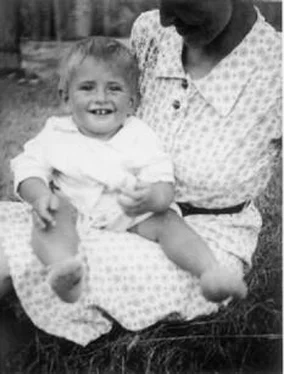


![Антон Текшин - EndGame [СИ]](/books/394477/anton-tekshin-endgame-si-thumb.webp)
